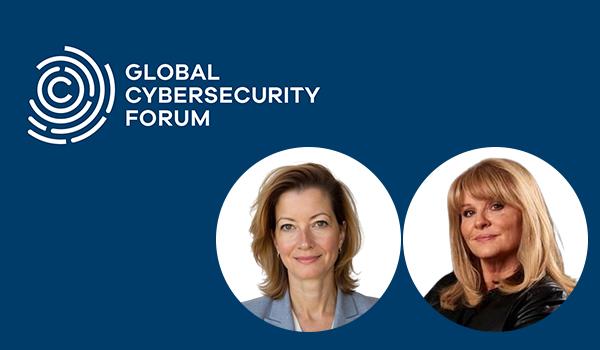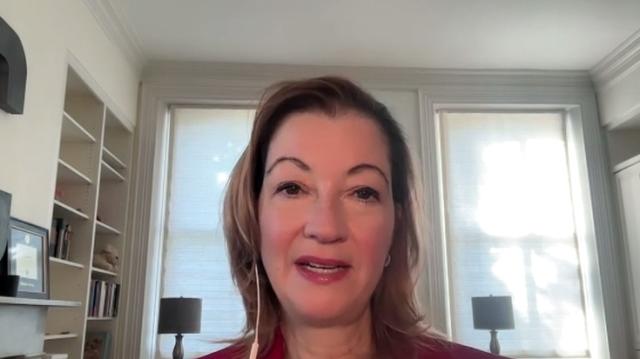
"Traditional defenses like fences and soldiers are no longer sufficient. Cyber resilience must be treated as a core part of national security, not an afterthought," said Heidi Crebo-Rediker, senior fellow at the Council on Foreign Relations in Washington, in an interview with AJP via Zoom.
Mary Aiken, the world’s first cyberpsychologist who joined separately to discuss cyber themes, expressed concern about the surge in AI-assisted frauds and victim shaming in Korea. "When AI is used to make deepfakes and emails that are practically indistinguishable from legitimate ones, even highly vigilant individuals can be deceived," Aiken said.
The two have been invited to the Global Cybersecurity Forum, hosted by Saudi Arabia’s National Cybersecurity Authority, which begins Wednesday for a two-day run. Launched in 2020 during the kingdom’s G20 presidency, the annual forum has become a key platform for international cooperation and knowledge-sharing on global cyber challenges.

"Governments have a big role to play in ensuring that technology — one of Korea’s national jewels — is protected," she said, pointing out that innovators tend to focus on developing cutting-edge technologies while neglecting vulnerabilities such as intellectual property protection.
Crebo-Rediker, who served as the first chief economist at the U.S. State Department under President Barack Obama, underscored the importance of treating cybersecurity as a competitiveness and security agenda.
Korea’s pride as a digital powerhouse was bruised by a string of major hacking and data breach incidents involving top wireless carriers and credit-card issuer Lotte Card. Most recently, hundreds of public electronic services were disrupted after a fire broke out at a government data center.
"You are not alone — the U.S. has also faced many cyberattacks on financial institutions, telecoms, and critical infrastructure, mainly from China and North Korea," she added, noting that "Korea should coordinate with the U.S., Japan, and European countries to share intelligence."
Stressing the need for inter-government cooperation, she suggested joint R&D investment between Korea and the U.S., creation of early warning systems, and development of resilient supply chains.
"Cybersecurity cannot be contained within one country. It requires global collaboration," she said.

Mary Aiken, an Irish pioneer in the field of cyberpsychology who advised the FBI, Interpol, and the White House, emphasized the demoralizing impact of cyber abuses on the human mind.
"Cyber fraud schemes exploit human characteristics around judgment, decision-making, biases, and trust in authority cues. For example, an email may look like it’s from your bank manager or boss, creating urgency to act immediately."
She cautioned that victim shaming only worsens the impact. "It intensifies trauma, discourages reporting, and reinforces the false belief that cyber fraud results from individual weakness rather than systemic vulnerabilities," she said. "From a cyber behavioral science perspective, this creates a dangerous cycle."
Protecting victims, she added, is not just about "compassion" but is essential to strengthening "national cyber resilience."
She too called for government intervention and actions to protect young people from online dangers, recommending early school digital literacy and empathy training, targeted cyberpsychological interventions for at-risk youth and counseling, and stronger family and community-level support systems.
Copyright ⓒ Aju Press All rights reserved.




